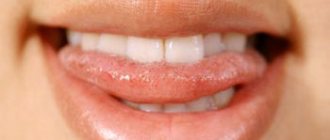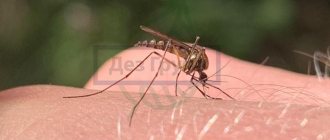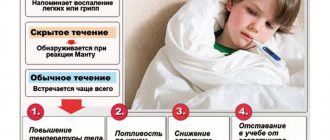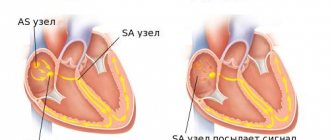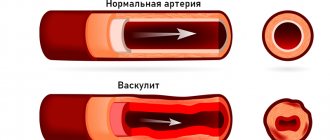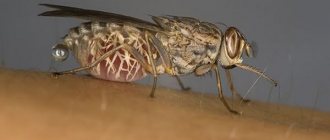Infectious disease experts note that the symptoms of Covid-19 are quite unpredictable. In addition to the main symptoms, there is also a complete and sudden loss of smell and lack of taste. But how to restore your sense of smell after coronavirus and do it quickly?
Signs accompanying the main symptoms appear in 70% of 100. Partial or complete loss of smell and weakening of taste buds, according to experts, are full indicators of the presence of coronavirus infection.
Description of the pathology
Loss of smell is a fairly serious problem that significantly affects the human body. Moreover, this applies not only to purely aesthetic aspects. This dysfunction can significantly affect the body as a whole.
Pleasant smells help stimulate the production of digestive juices. As a result of the lack of this function, digestive disorders occur. According to the ICD-10 code, it is classified as R43.
A number of toxic substances cause a completely natural defensive reaction in humans - sneezing. As a result of this function, microparticles that enter the nose are immediately eliminated by air flow and a large release of moisture. With anosmia, these substances easily penetrate inside.
More specifically, with anosmia, the nerve endings in the nasal cavity stop responding to stimuli. As a result, impulses do not reach the brain and odors are not felt. In some cases, there is such a deviation when, with damage to the central nervous system, odors are felt, but not recognized.
In some cases, there is such a development option as the perception of smell by the receptors of the nose, but the signal itself is blocked on the way to the brain, which is why it remains unrecognized.
Why does the taste disappear?
The new type of coronavirus infection affects not only the upper and lower respiratory tract, but also the structures of the central nervous system. In some cases, loss of taste is a neurological complication of COVID-19 and is not accompanied by anosmia. But most often it is associated with a temporary blocking of taste buds.
When eating food, people also smell it, which enhances pleasure. If there is no sense of smell, then you will not be able to fully enjoy food. Moreover, taste sensations will change significantly and become distorted. Therefore, loss of smell during coronavirus infection will certainly cause ageus. Scientists involved in the study of pathology have identified two factors that provoke partial loss of taste:
- congestion, narrowing of the nasal passages due to severe inflammatory swelling;
- penetration of infectious pathogens into the paranasal sinuses with the development of coronavirus sinusitis.
Taste buds are located primarily on the top of the tongue. These are special structures that accurately capture tastes - bitter, sour, sweet, salty. The receptors are often blocked by a thick yellowish coating on the tongue, characteristic of coronavirus. Its formation is caused by the use of drugs, weakening of local and systemic immunity, and dehydration.
Kinds
Loss of smell is divided into several types:
- Congenital and acquired, unilateral or bilateral;
- Peripheral and central.
It is worth noting that the central one is where the central nervous system works incorrectly or incompletely, while the peripheral one specifically concerns the receptors located in the olfactory organ. Accordingly, peripheral is divided into four more types:
- Functional, as a manifestation of local pathologies - vasomotor rhinitis, sinusitis, sinusitis, and so on. In this case, after recovery, the sense of smell returns in full.
- Respiratory, when particles carrying odor do not, for one reason or another, reach the location of the peripheral section in the olfactory analyzer. Caused by polyps, adenoids, deviated nasal septum, tumors, and so on, that is, very real physical obstacles that, as a rule, need to be removed.
- Age or senility develops under the influence of atrophic processes, as well as drying of the nasal mucosa.
- Essential develops as a result of damage to the peripheral part, which develops under the influence of inflammatory processes of the hypo- or atrophic type, for example, with atrophic rhinitis, burn of the nasopharynx, surgical or household trauma, that is, in cases where the olfactory epithelium is damaged. In some cases, recovery becomes impossible.
It is worth noting that peripheral anosmia is most often characterized by a decrease in taste sensations.
When are the senses of smell and taste restored?
How long there is no sense of smell during coronavirus depends on the quality of the body’s immune defense. If a person does not have chronic pathologies and does not often suffer from seasonal respiratory infections, then he will recover in about a week. But with an initially weakened immune system, the return of the ability to recognize smells and tastes has to wait at least two weeks or more.
Doctors who treat infected people have found that the clinical manifestations of a dangerous pathology mainly increase gradually. At the initial stage, a person always perceives only strong odors. With strong immunity, this condition does not progress. After 5-10 days, the body copes with infectious pathogens, and all symptoms disappear.
Loss of smell and taste due to coronavirus goes away along with other symptoms as the person recovers.
With coronavirus, the sense of smell disappears for a long time if the immune system does not produce enough antibodies to destroy pathogens. The severity of anosmia and agesia is steadily increasing. After the incubation period is over, the sense of smell and taste are lost for a long time. For 2-3 weeks, a person is not able to fully eat food or feel pleasure from food. This negatively affects his physical and psychological condition and slows down his recovery.
Causes of loss of smell
As previously mentioned, each type of pathology is characterized by its own development and root cause. In general terms, this is:
- Cerebrovascular accident;
- Neoplasms both in the brain and in the nasopharynx;
- Disseminated encephalomyelitis;
- Arachnoiditis;
- Traumatic brain injuries;
- Pathologies of cerebral vessels;
- Meningitis;
- Diseases of the nervous system: Alzheimer's, Parkinson's and so on;
- Ethmoiditis;
- Underdevelopment of the olfactory pathways;
- Nasal polyps and other formations;
- Pathologies of the olfactory mucosa - from acute rhinitis to colds in general;
- Destruction of the olfactory pathways, bulbs;
- Inflammatory diseases of the sinuses of the ethmoid bone, pia mater, and surrounding area;
- Smoking;
- Toxic poisoning;
- Age-related disorders.
Popular video about the causes of loss of smell:
What to do if your sense of smell is lost
The universal advice is to see a therapist. And as quickly as possible: sometimes loss of smell indicates a really serious illness, and the sooner the diagnosis is made, the higher the chances of recovery.
The doctor will ask you about your health and other symptoms and conduct an examination. Often this is enough to find out the cause of anosmia - colds, hay fever, and burns of mucous membranes are easily diagnosed. If you can’t immediately figure out why your sense of smell has disappeared, your doctor will suggest that you undergo additional examinations:
- Take a blood test to rule out problems with hormones or, say, lack of nutrients.
- Get a CT (computed tomography) or MRI (magnetic resonance imaging) scan of the brain to look for possible tumors, problems with blood vessels, or damage to nerve tissue.
- Perform nasal endoscopy. During this procedure, the doctor uses a probe to examine the nasal passages and sinuses.
Treatment for anosmia depends on its cause. If the loss of smell is associated with a common cold, hay fever or acute respiratory viral infection, no special therapy is required: just recover and the ability to smell will return. Sometimes surgical methods help. So, your doctor may recommend that you remove polyps or correct a deviated nasal septum.
In more serious cases, where loss of smell is caused by destruction of nerve tissue, prescription hormonal and other medications will be required. They will no longer be prescribed by a therapist, but by a specialized specialist - a neurologist or psychiatrist.
Unfortunately, it is not always possible to cure anosmia. And you also need to be prepared for this.
Symptoms
The symptoms of the pathology are quite vague and are often ignored by patients, perceived as a minor deviation in the functioning of the body. The symptoms depend on the factor that caused it. Pathology manifests itself in the following ways:
- With rhinitis: difficulty breathing through the nose, swelling of the mucous membranes, intense secretion;
- As a result of ARVI and colds, if it develops after recovery, post-viral essential anosmia, in which the olfactory epithelium is replaced by the respiratory one;
- If you sense odors, but are unable to recognize them, you can talk about damage to the central nervous system;
- When injured, the sense of smell is lost, but can be restored over time. At the same time, the function itself becomes perverted when the very perception of smells changes for a person;
- Loss or weakening of the sense of smell, which is accompanied by dry nasal mucosa, discharge with the formation of crusts in the nose, and so on, may well be symptoms of atrophic pathologies or age-related changes.
In any case, it is worth paying attention to pathologies that not only occur at a specific point in time, but also those that the patient previously suffered.
About consequences and forecasts
The sense of smell and taste will return after new, young and healthy cells are regenerated by the central nervous system. The prognosis is favorable. With a timely diagnosis and proper treatment, coronavirus goes away without complications.
Studies have been conducted, the results of which have linked the loss of taste and smell with the introduction of COVID-19 pathogens into the body. The largest involved two thousand recovered patients. Almost 70% had anosmia and agesia. Therefore, doctors strongly recommend that if you lose your sense of smell and taste, you should avoid visiting public places and adhere to self-isolation. This will not only help you cope with the infection more easily, but also prevent you from infecting others. Including elderly relatives for whom coronavirus is deadly.
Share with your friends
Do something useful, it won't take much time
Diagnostics
Diagnostics consists of conducting a number of studies:
- External examination of the patient;
- Survey;
- Carrying out radiography depending on the indications and symptoms;
- Carrying out ultrasound;
- Conducting an MRI or CT scan;
- An olfactometric test is done using strong odors;
- The odor perception threshold is revealed.
Often, an examination of the patient and a survey of complaints are enough to make a diagnosis and cause, but often a concomitant hardware examination is required to determine the source of the lesion.
How to restore your sense of smell
If you can’t smell anything at all, or if your usual foods start to smell differently than they should (for example, flowers smell like fish), consult a doctor immediately. The first specialist should be the ENT doctor of our clinic: if necessary, he will prescribe additional types of diagnostics (ultrasound, examination using a Zwaardemaker olfactometer). If you suspect disorders related to the functioning of nerve fibers, the doctor will refer you to a neurologist.
Do not put off visiting a doctor under any circumstances if you notice that you can clearly distinguish only pronounced and pungent odors. This may indicate, among other things, the development of such serious diseases as Alzheimer's disease.
Treatment
Treatment involves the use of a number of specific factors:
- Elimination of external causes: exposure to toxins, smoking, alcohol, and so on;
- Drug therapy depending on the pathology;
- Physiotherapeutic treatment;
- Surgery.
The latter, of course, is done only when there are serious indications, for example, in the presence of tumors or head injuries.
How to improve your sense of smell, watch our video:
Medication
Drug treatment depends on what pathology caused this deviation in the functioning of the olfactory organ. Most often required:
- The use of irrigating preparations based on sea water or isotonic solution; the use of vasoconstrictors like Vibrocil, Afrin, Rinorus to relieve swelling and nasal congestion;
- Use antihistamines for swelling and allergies to any substance - Cromohexal and so on;
- If the pathology is caused by an infectious component in the nasopharynx or sinuses, then the use of antibiotics, fungistatics, and antiviral agents is mandatory, depending on which specific pathogen caused the disease.
Drug treatment is carried out strictly according to indications, for example, in case of cerebrovascular accidents, diseases of the central nervous system, and so on, the range of therapeutic agents is selected individually and only taking into account the characteristics of each patient.
Prevention
In order to maintain the ability to distinguish odors, you should adhere to the following recommendations from experts:
- Avoid vitamin deficiency and decreased immunity.
- Be careful with chemicals.
- Do not smoke or abuse alcohol or drugs.
- If you have a runny nose, do not use vasoconstrictor drops for a long time.
- Do not use cosmetics with strong fragrances.
- Treat any respiratory diseases promptly.
Dear readers, have you ever experienced loss of smell? What alternative methods and medications have you used to bring it back? Share your recommendations and effective recipes.
Recovery after a runny nose
After a runny nose, it often takes time to recover. At the same time, several types of influence are proposed to speed up the process - aromatherapy, folk remedies and gymnastics.
Aromatherapy
Aromatherapy is one of the most effective methods of restoring the sense of smell after illness. It is often used in the treatment process, for example, esters based on coniferous and citrus plants are considered the most effective
. In general, we can make a list of the following aromas that should restore olfactory function:
- Pine oil;
- Mint;
- Eucalyptus;
- Grapefruit;
- Fir trees;
- Juniper;
- Lavender;
- Lemon.
Geranium has shown high effectiveness, whose oil is mixed with ordinary vegetable oil (1-3 drops per 1 tbsp) and inserted in the form of a turunda for 10 minutes into each nasal passage three times a day.
Folk remedies
Folk remedies are most often limited to rinsing the nasal cavities:
- Saline solution;
- Chamomile decoction;
- Calendula decoction;
- Aloe solution.
Allergy sufferers should be extremely careful with herbal ingredients. There is another way - inhale the smoke from onion and garlic peels twice a day. You can also chew the spicy cloves, but do not swallow them.
Reviews and recommendations for treating anosmia using folk remedies:
Gymnastics
Gymnastics is not such a popular method and not everyone knows about it. It consists of doing the following exercises daily:
- Take short breaths for 6 seconds, as if sniffing something;
- Place your finger on the tip of your nose, press your nose with your finger and press your nose onto your finger at the same time, pulling your lower lip down;
- Place your finger on the bridge of your nose, press on the area and try to move your eyebrows.
In the process, try to strain only the areas of influence. You can repeat the exercises up to 4 times a day or at a time.
How to restore your sense of smell at home?
An effective method for treating colds, as well as for restoring taste and smell, is the use of saline solution. To prepare this solution, dilute 2 g of salt in a glass of warm boiled water. We draw salted water first into one nostril and then into the other so that the solution penetrates to the larynx. Sometimes a couple of drops of iodine are added to this solution.
To restore your sense of smell yourself, use the following procedure: pour 200 g of water, 1 tablespoon of lemon juice, 2 drops of mint oil (lavender can be used) into a saucepan and boil everything. You need to breathe in the warm mixture through your nose, alternately closing one nostril and then the other. This treatment must be repeated daily for 10-14 days.
To restore taste and smell, propolis is an excellent folk remedy. Let's prepare a composition of propolis, butter and vegetable oil. The composition is prepared in a ratio of 1:3:3. Mix everything well until smooth and soft. Soak cotton swabs in this mixture and place them in both nostrils at once for 15 minutes. Try to carry out this procedure in the morning and evening.
Some people who have lost their sense of smell after a runny nose benefit from a procedure using vinegar. Pour 5-6 tablespoons of table vinegar into a very hot frying pan. As soon as the vinegar begins to evaporate, you need to lean over the frying pan and carefully inhale the hot fumes. At the same time, make sure that the vinegar vapor does not get into your eyes.
You can restore your sense of smell yourself with the help of a powder made from herbs: mint, chamomile, lily of the valley, marjoram and caraway. First, dry these plants well and then chop them well. The resulting remedy must be inhaled alternately into one nostril, then into the other. This collection can also be used for inhalation.
The following exercise for the nose has long been used to restore the sense of smell: first tense the wings of the nose, and then relax. Moreover, the time of tension should last longer than the time of relaxation. This exercise should be done daily up to 6 times a day until improvement occurs.
Also, to restore smell and taste after a runny nose, use a mixture of honey and beet juice. A few drops of this solution are instilled into each nostril for one week.
Loss of smell with a runny nose
The child's body begins to recognize basic odors from about 4 months, while these sensations reach their peak only during puberty. After 45, under the influence of aging processes, this function gradually decreases, and the most dramatic decrease in the sense of smell occurs after the age of 70. But it is worth understanding that a decrease in these sensations can be not only the result of aging of the body, but also a sign of other abnormalities, pathologies, and conditions.
Loss of smell, as a symptom, got its name - anosmia. Decreased sensations of this type are called hyposmia. This is a function necessary for life, which helps to distinguish not only pleasant, but also unpleasant, poisonous, life-threatening odors, and in some cases can be restored.
What is anosmia?
Anosmia is the loss of the ability to smell and distinguish between them, caused by reversible or irreversible changes in the nasal cavity or olfactory analyzer.
There are the following types of loss of smell:
- Complete anosmia;
- Partial (selective);
- Congenital;
- Acquired;
- Central;
- Peripheral (Functional; Respiratory; Essential; Age-related)

